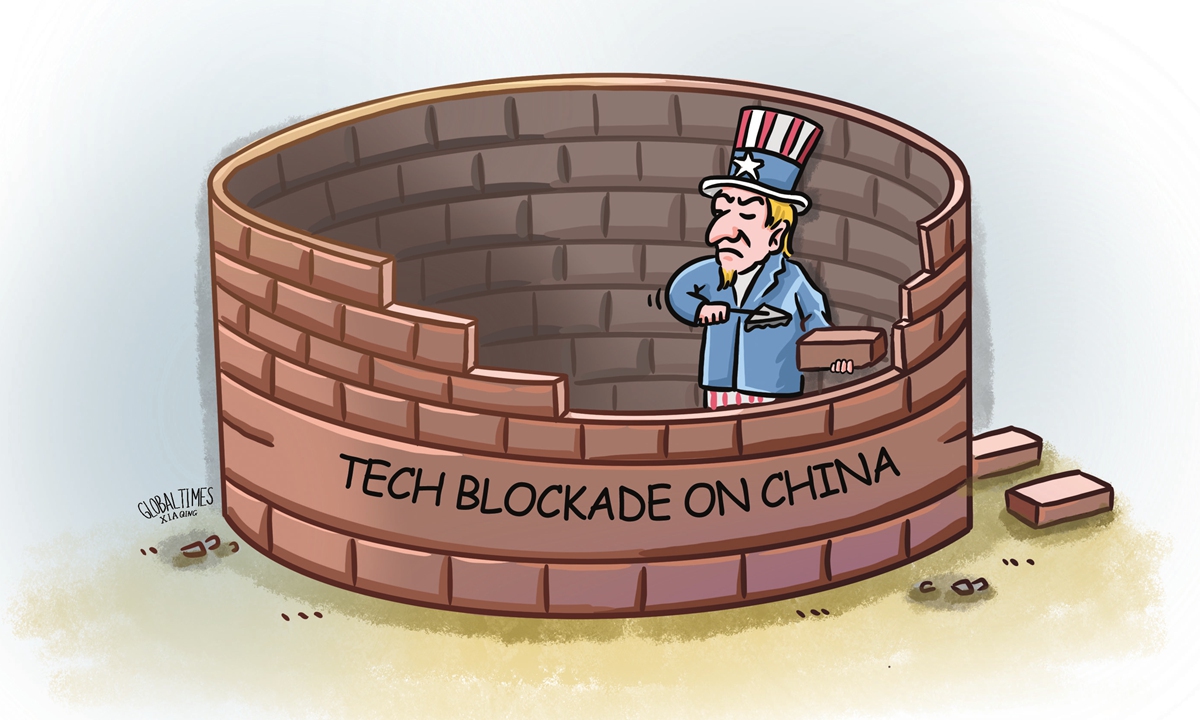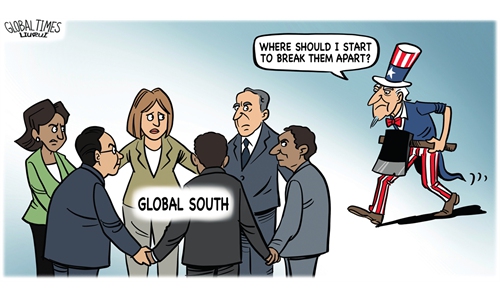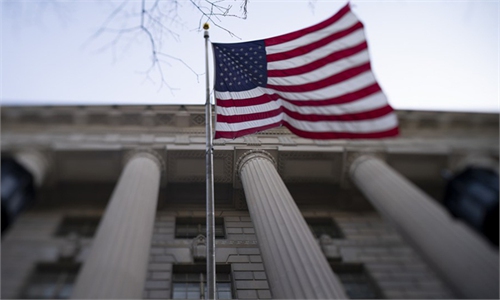
Illustration: Xia Qing/GT
In a conversation with visiting US Secretary of State Antony Blinken, Chan Heng Chee, ambassador-at-large at Singapore's Ministry of Foreign Affairs, repeatedly expressed concerns from Southeast Asian countries about the US' growing trend toward trade protectionism. She said she gets discouraged when she hears Americans say they can't do trade, and is very worried about the US "small yard, high fence" policy, as it is becoming a bigger yard and higher fences. This mirrors the deep concerns of Washington's Asian allies about the US' growing trade protectionism and reckless high-tech crackdowns.
Singapore is one of the stops on Blinken's 18th visit to the Asia-Pacific region since becoming Secretary of State. His visit has largely revolved around China, with the aim of strengthening the "Indo-Pacific Strategy" and using the pretext of US-defined "freedom and openness" to form more exclusive cliques. During the conversation in Singapore on about protectionism nesday, Ambassador Chan questioned the US about its generalization of security which she believes is causing the definition of national security to become "looser and looser." Chan's concerns about these worrying trends in the US are representative.
Ironically, in response to Chan's questions, Blinken stated that the US government wants to "make sure that even as we're taking what we believe are necessary measures to protect our security, we're not doing it in a way that undermines, inhibits trade." This suggests that the US promises to protect trade freedom while implementing trade protectionism, a contradictory commitment. But Blinken indicates that the US will allow these two almost opposite terms to coexist.
In the conversation, there is also a pair of terms that are difficult to coexist: "minilaterals" and "multilateral system." The multilateral system represents openness and inclusivity, while the minilateral system is the exclusionary cliques that the US has become more adept at forming in recent years. Faced with Ambassador Chan's questioning of the Biden administration's obsession with creating minilaterals such as Quad, AUKUS to meet security objectives, Blinken stated that the multilateral system remains an important part of US' cooperation with countries around the world. This response was pale and unconvincing.
What we see is that the so-called multilateral system Washington has been promoting is operating based on the idea of America First. In fact, it is not even a multilateral mechanism but a truly minilateral one. Washington's minilateralism is essentially a selfish act that protects US' core interests, said Sun Xihui, an associate research fellow with the National Institute of International Strategy at the Chinese Academy of Social Sciences. The strategy inevitably harms the interests of other countries, including US allies. Therefore, if the strategy is implemented in the long term, it will inevitably lead to conflicts of interest between the US and its allies.
The dialogue between Ambassador Chan and Blinken is a good footnote on Southeast Asian countries' views on the US. As a neutral and politically independent country, Singapore's voices effectively represent the sentiments of Southeast Asian countries regarding the negative impact of US technology restrictions and trade policies. This should serve as a wake-up call for the US.
In order to block China's technological advancement, the US has spared no effort in building "small yard, high fence" and suppressing China's technological development, even at the cost of disrupting global technological cooperation and supply chains. This has led to concerns in countries like Singapore and other Southeast Asian countries that the US' abuse of economic tools to achieve geopolitical goals will have a significant impact on the global economy and even threaten global stability.
The current US strategy is at odds with the traditional development concepts of Southeast Asian countries. If the US continues to push for "small yard, high fence" approaches or other anti-globalization measures such as minilateralism, it will only bring harm to Southeast Asia without any benefits.
Blinken's assurances will not only be scrutinized by Southeast Asian nations but also by other countries worldwide affected by US trade protectionism. It is crucial for the US to fulfill its promises rather than offering empty assurances to temporarily alleviate concerns. Repeatedly failing to deliver on promises will only erode trust and credibility in the long run.



